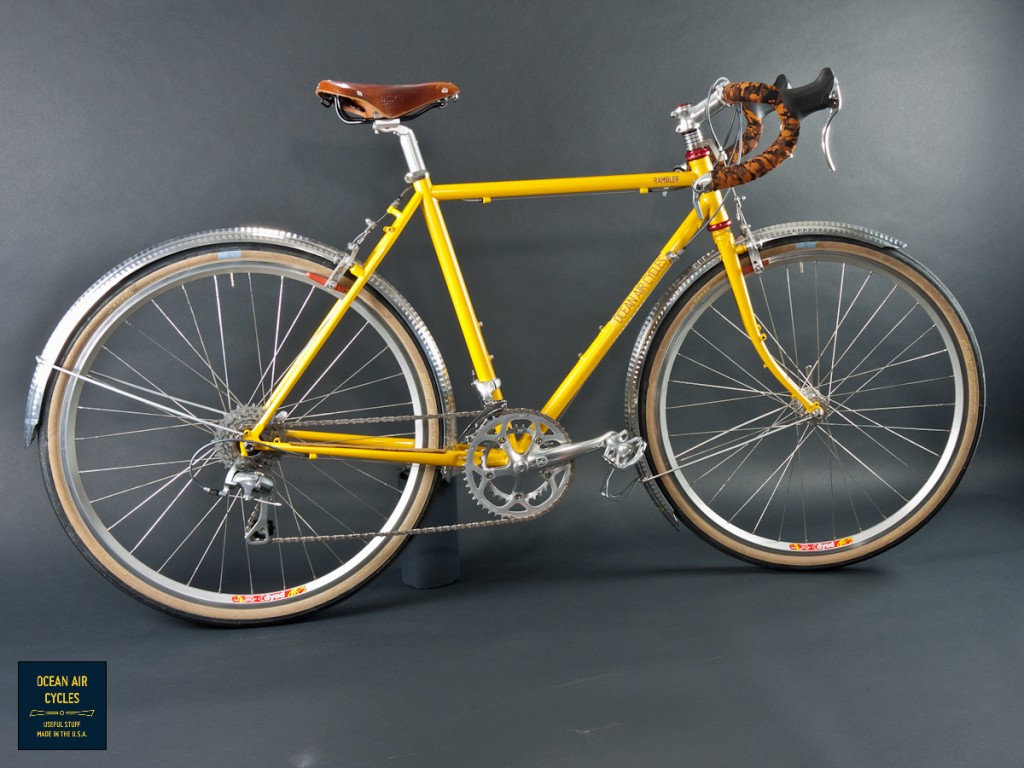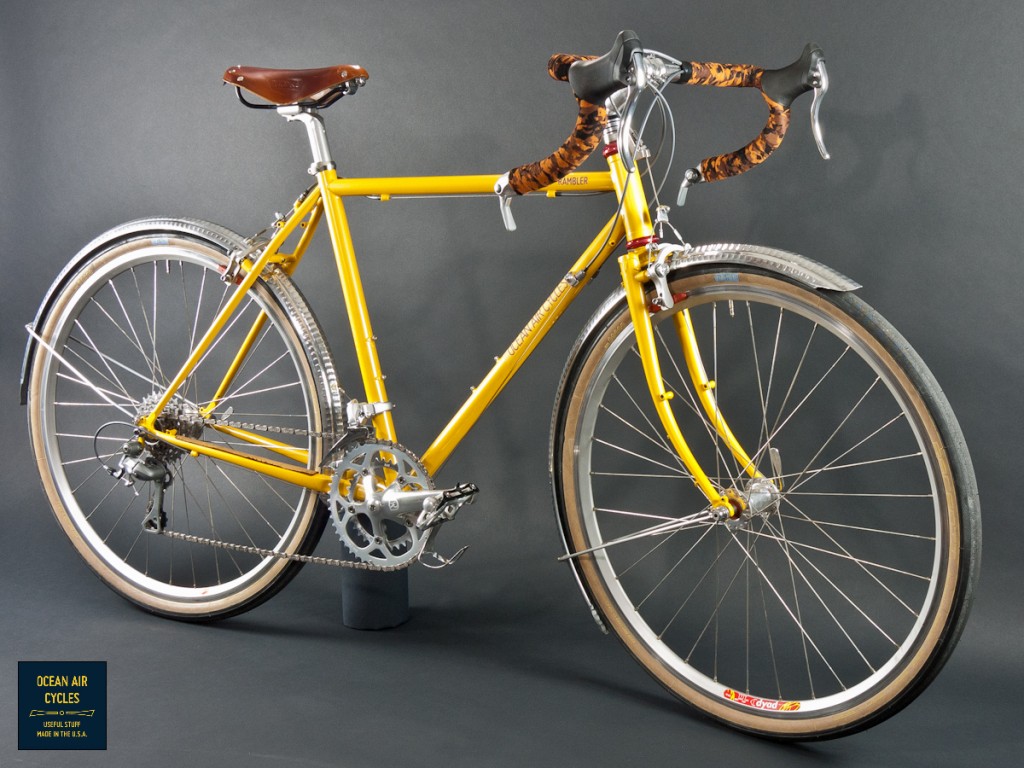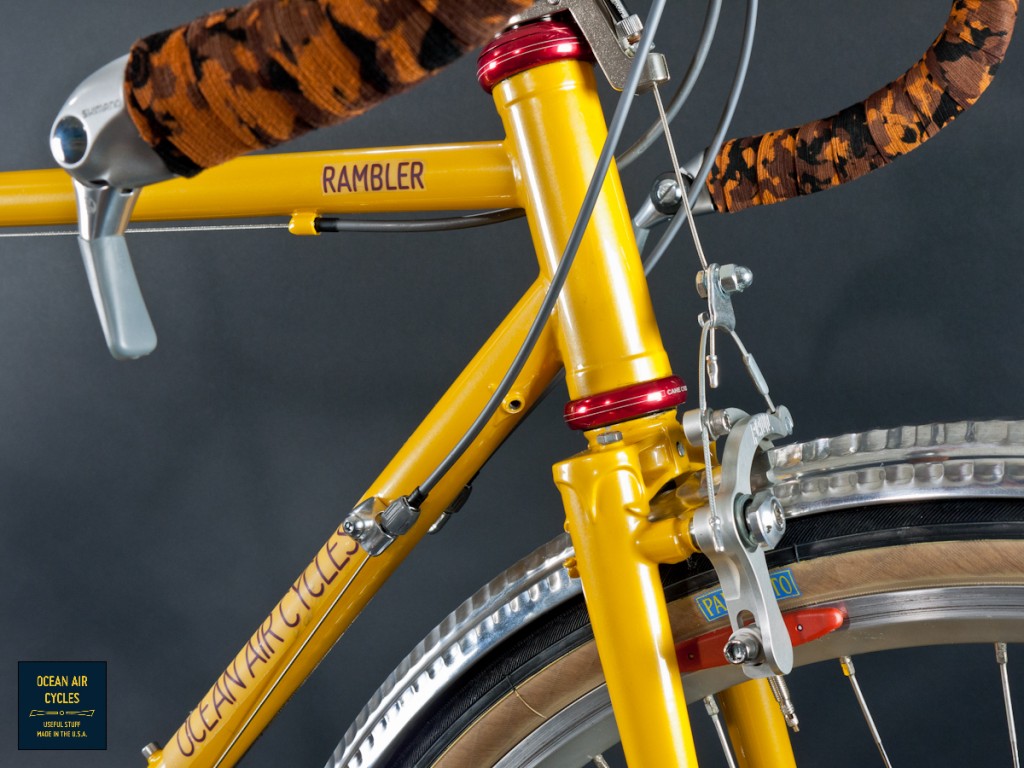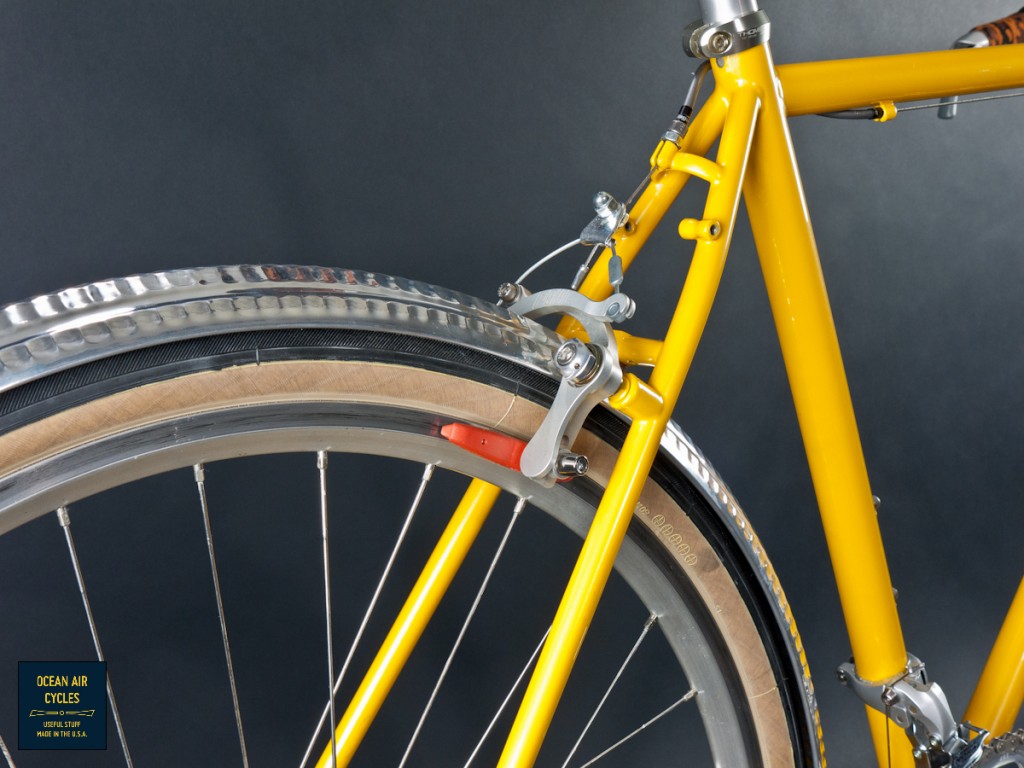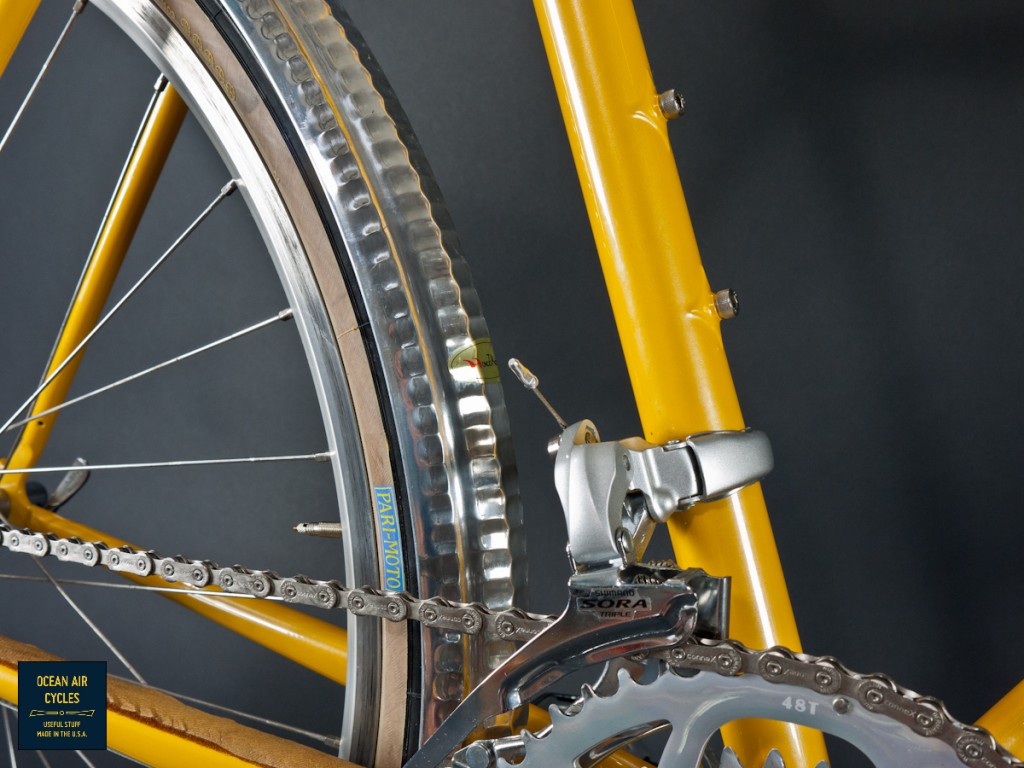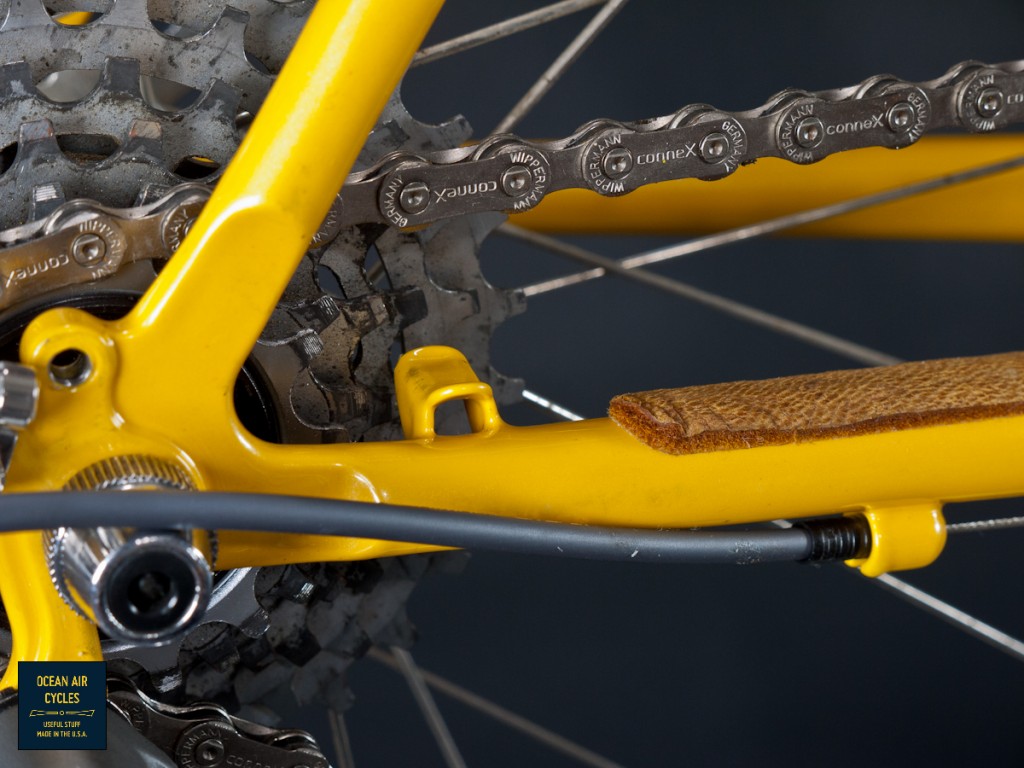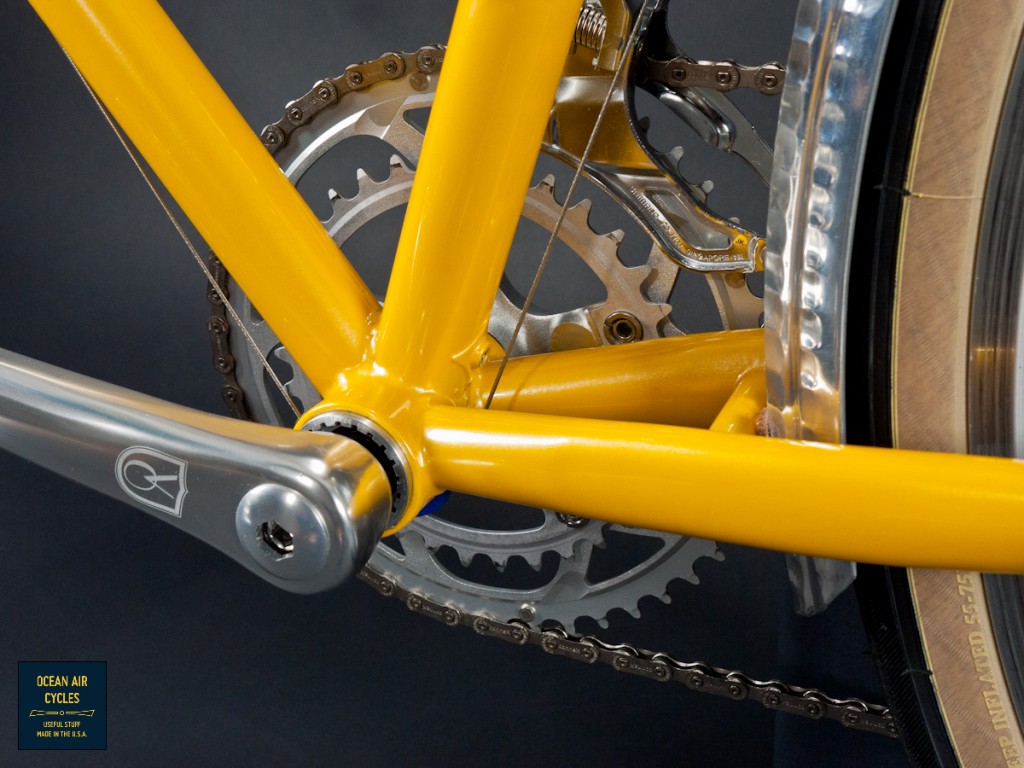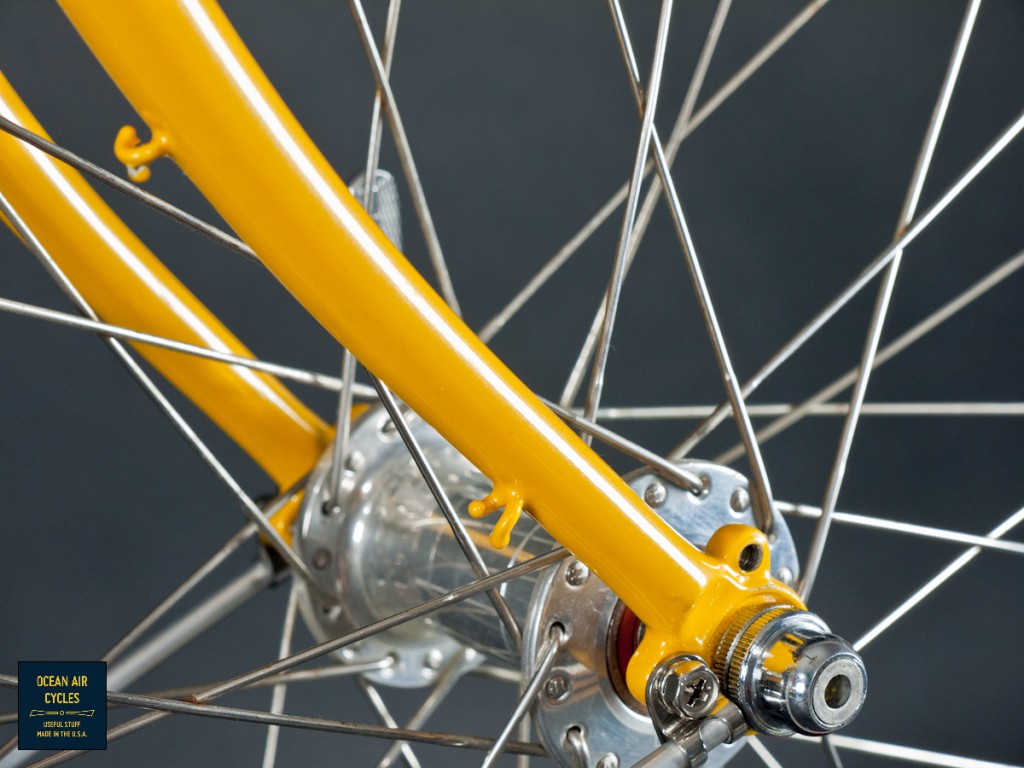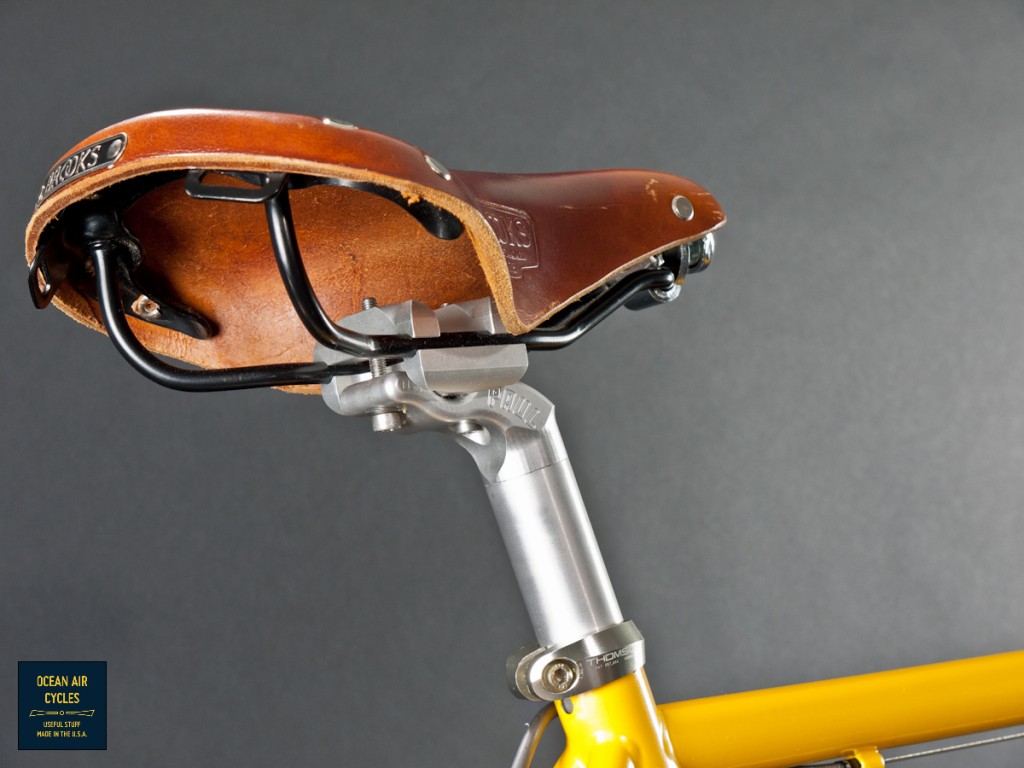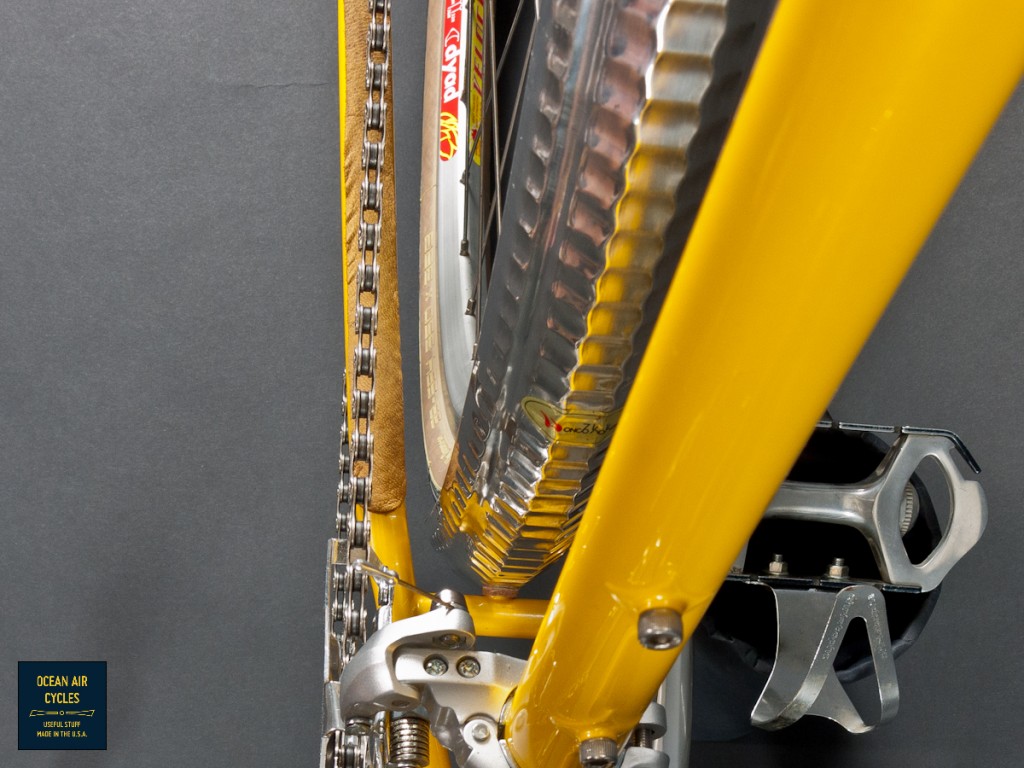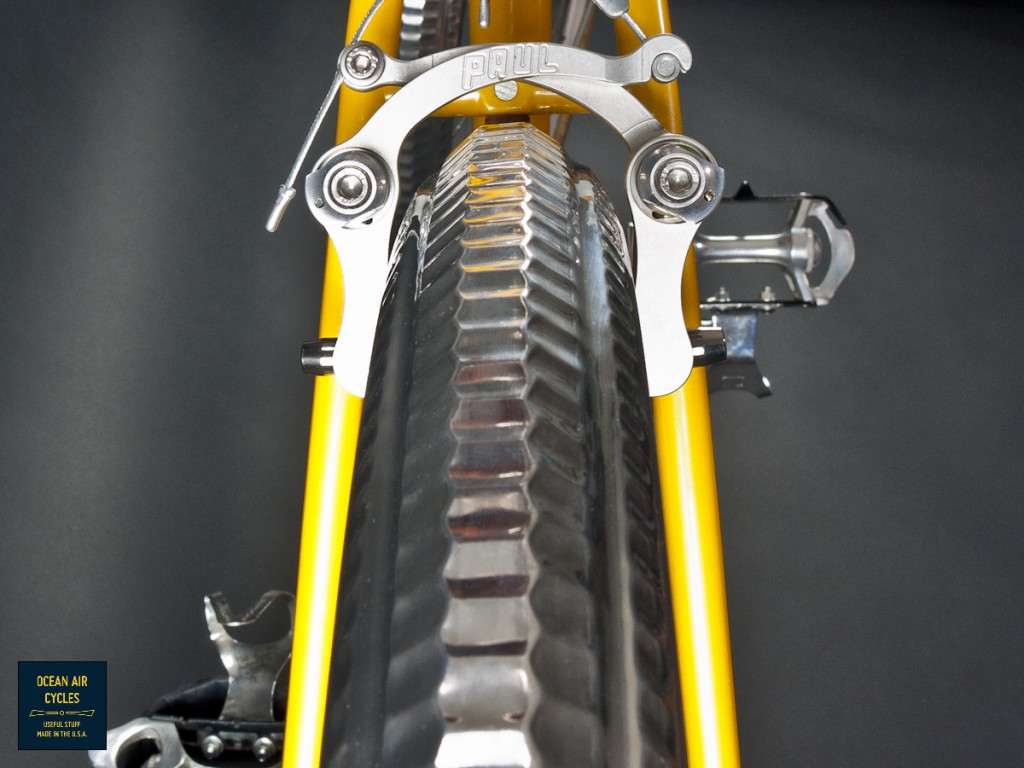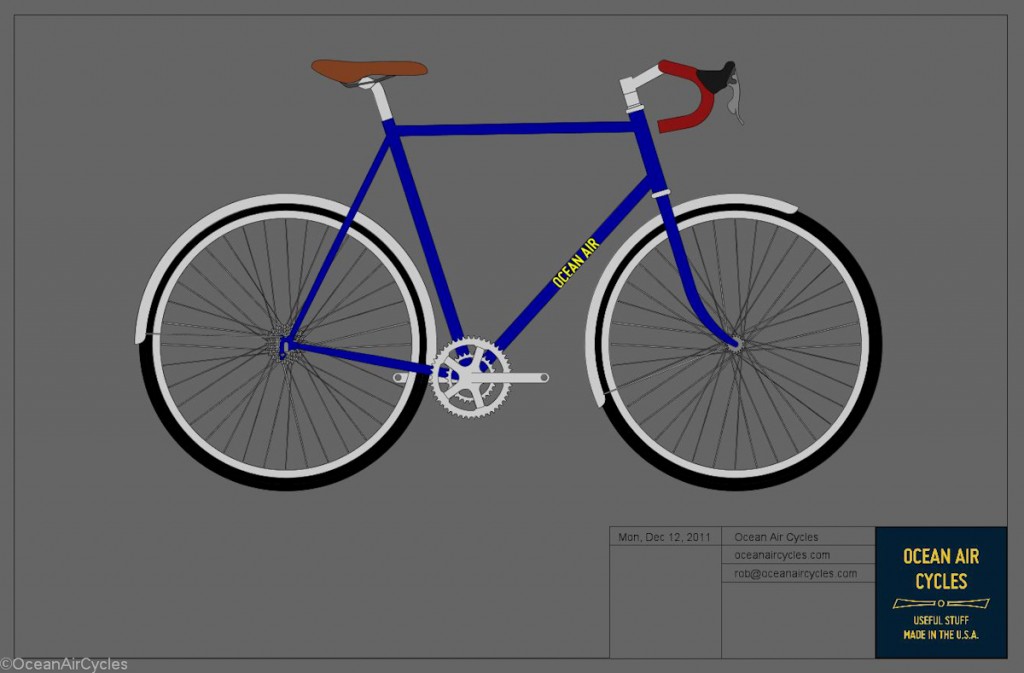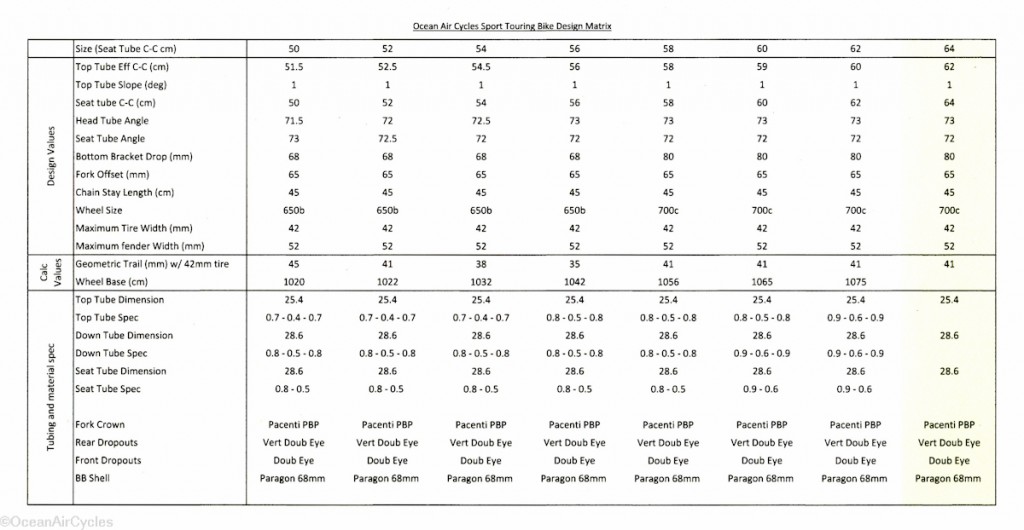This is the most beautiful bike I have built up yet. I would even go as far as saying it is nicer than my roadeo from Rivendell. After years of reading on the web and doing multiple 650b conversions on my own, this one went together perfectly the first time. With some careful planning, part procurement and patience this bike went together as if it were always meant to be this way.
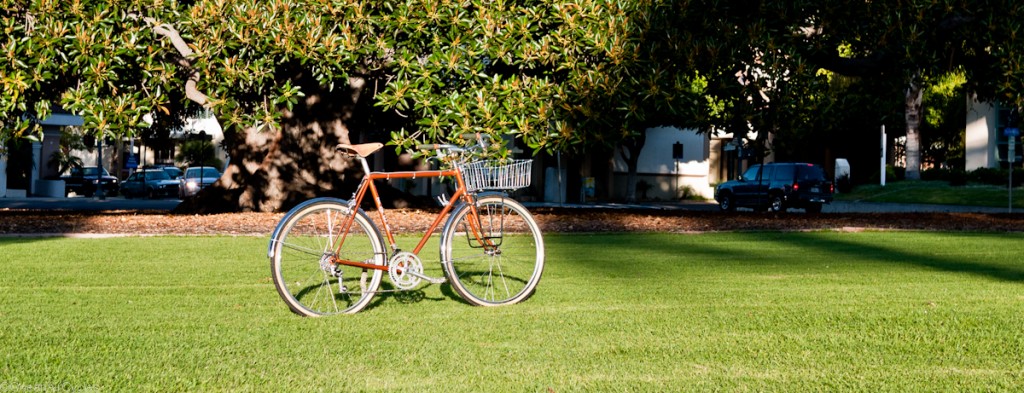
This Trek 613 started its life as a 27″ wheeled touring bike back in 1981, and by the looks of it once in my garage, it was barely ever ridden. There are a few scuffs in the paint, but most of the damage appears to have happened while in storage. The visible portions of the frame’s interior were pristine. I treated the inside with a liberal coating of T9 to keep it rust free as long as possible. For this build I was able to reuse much of the drive train, replacing only the wheels, cassette, and bottom bracket. The headset was preserved, and rebuilt with loose balls and phil grease.
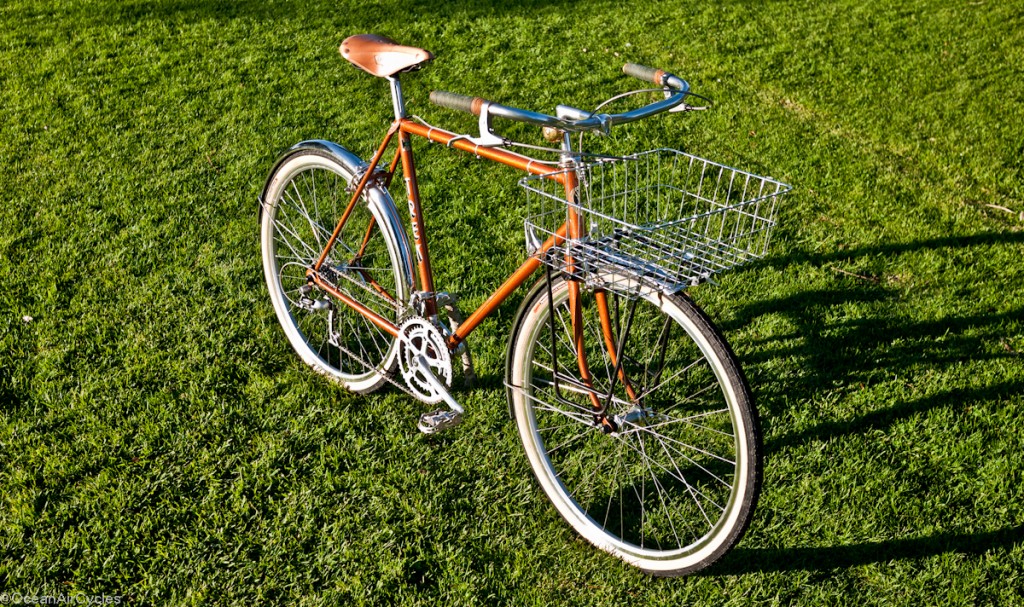
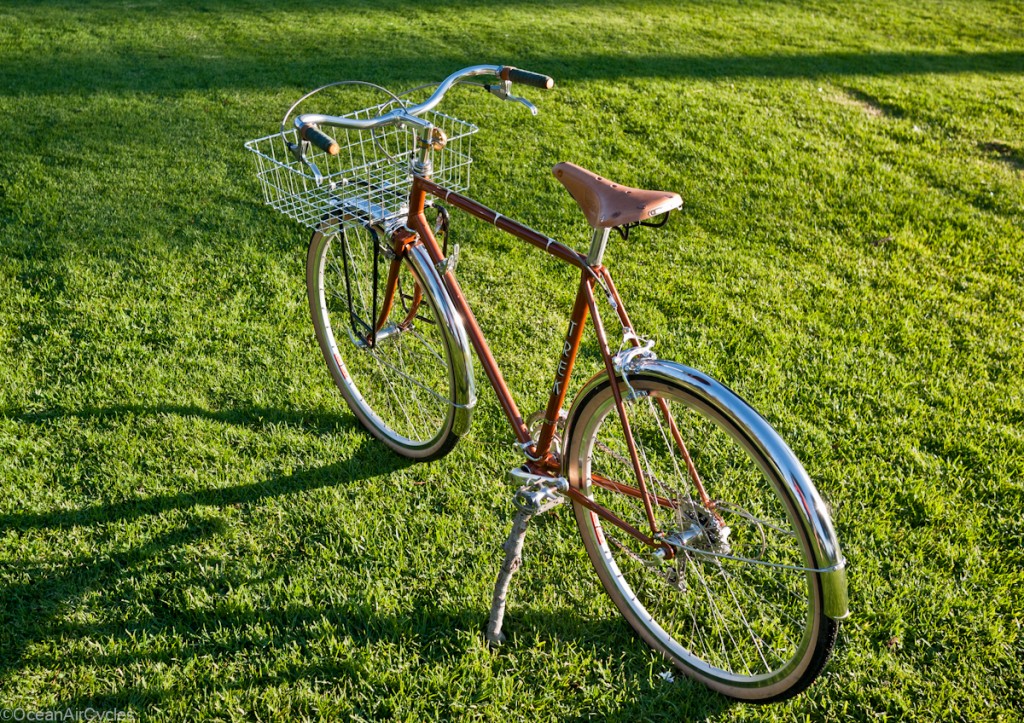
The cockpit was built up with a Nitto Technomic Delux stem, Albatross bars and Shimano brake levers. The brass bell is from Crane in Japan. The grips are blue Neubaums cloth tape over a layer of cork tape. Three layers of garnet shellac brought the final color to a fantastic dark patinaed coppery green that is a perfect contrast to the copper color of the bike. Te saddle is a Brooks B17 Special Select.
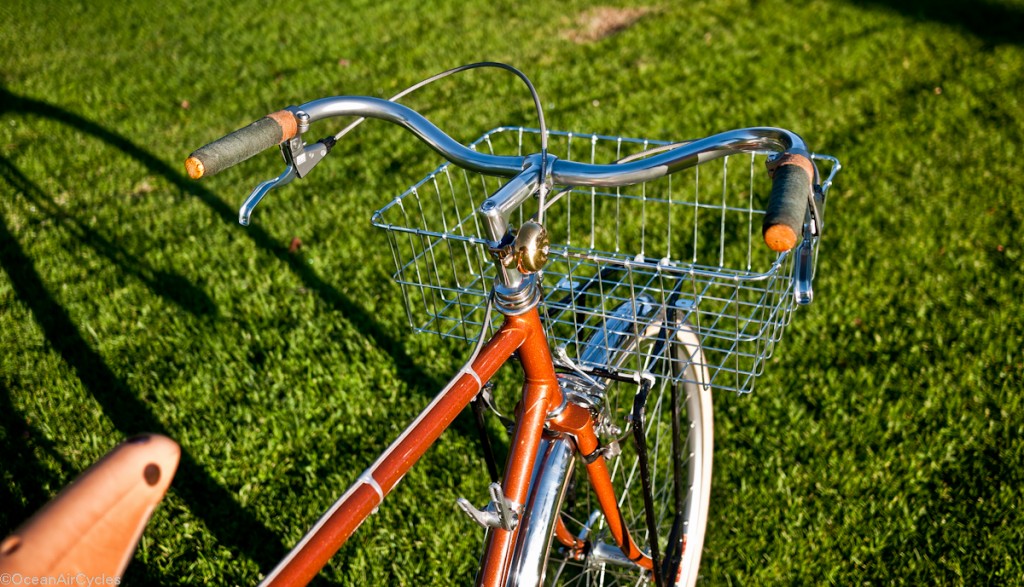
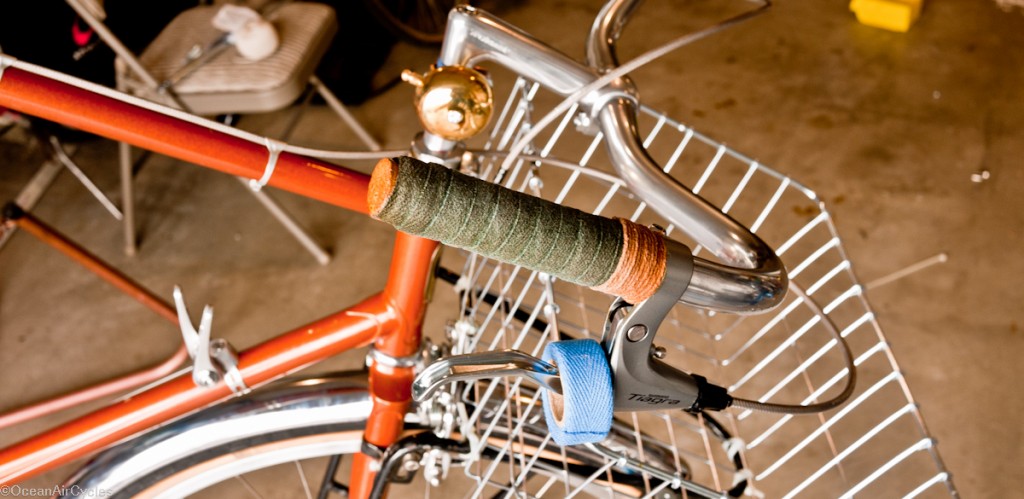
The front rack is a Bruce Gordon MTN rack that used to reside on my bike and will be the temporary support system for the Wald basket. While the basket provides incredible versatility, the stock hardware is not up to the task at hand. In the long run this will be set up with a rack that will allow for panniers in a low mount with a high mount to support the basket. The fork dropout only has a single eyelet to support both the rack and fender. My work around for this is to thread in a hex bolt from the inside, providing a stud to mount both. The whole assembly is then held on with a lock nut. In theory if the nut ever came loose, it should all still be able to be held in place with a zip tie until you could get to a hardware store.
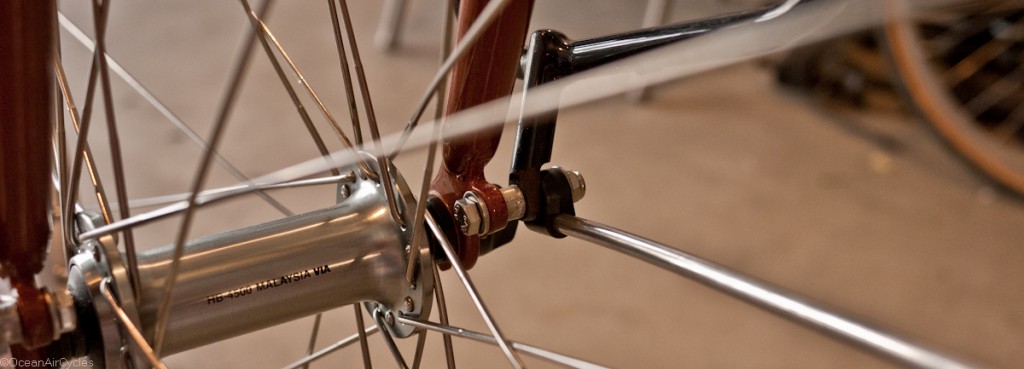
I utilised Dia-Compe 750 centerpull brakes to get the required reach to the smaller rims. The stock pads were replaced with KoolStop Cross Pads. The wheel set is Shimano Tiagra laced to Velocity Synergy rims. I opted to use an 8spd rear cassette to hopefully be a bit more forgiving with the Suntour Symmetric DT shifters. The downside to this is that the shifters only move the chain across 7 of the 8 cogs due to the limited throw.
Now for the part that everybody cares about. I opted to use Panaracer Col De La Vie tires on this bike to ensure adequate tire clearance at the chain stays. These older Trek frames, pre 82, will generally have room for a tire up to 38mm wide without needing to dimple the stays for more space. Spreading the rear from 126 to 130 mm at the dropouts while adding tire space in theory did not make a noticeable difference in reality. The fenders are Berthoud 650b x 50 mm. These were fairly simple to install, only requires minor re-shaping to accommodate the horizontal stays, leave plenty of room to install wider tires in the future and resulted in near perfect fender line around the tire. I did make a wooden mandrel to help shape indents for better fender clearance at the fork and chain stays. The rear brake bridge attachment was made with Honjo hardware. The connection at the chain stay bridge was made with a long bold and spacer. While a spacer is not ideal, it seemed a better option than moving the bridge on a bike in this condition.
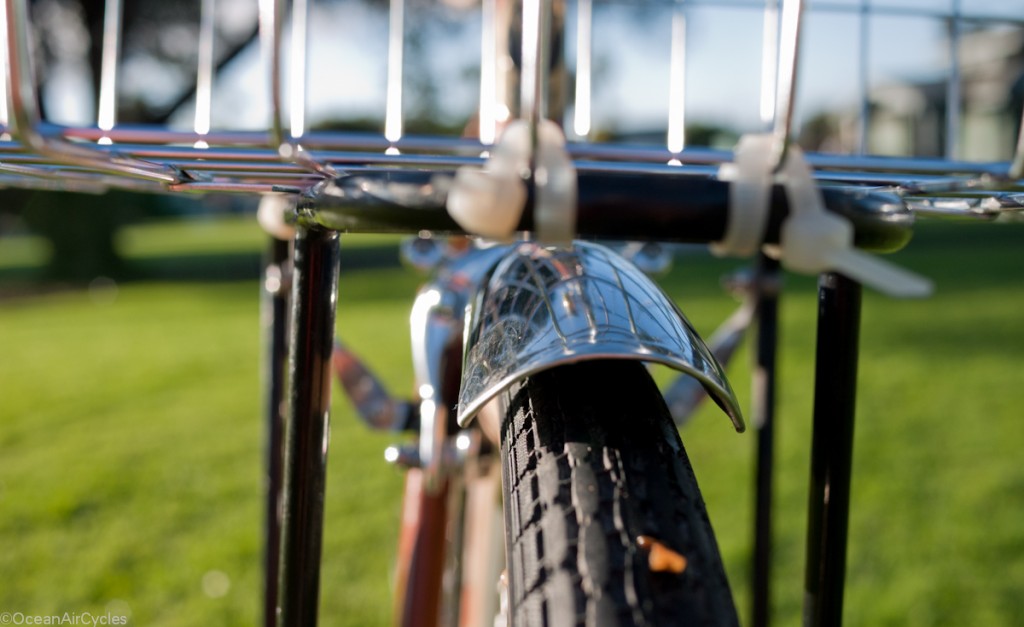
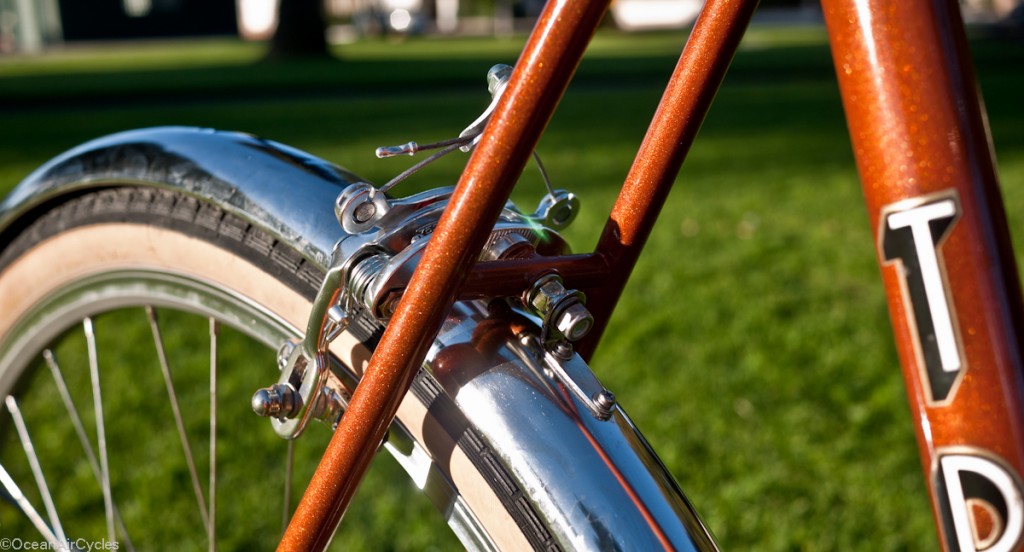
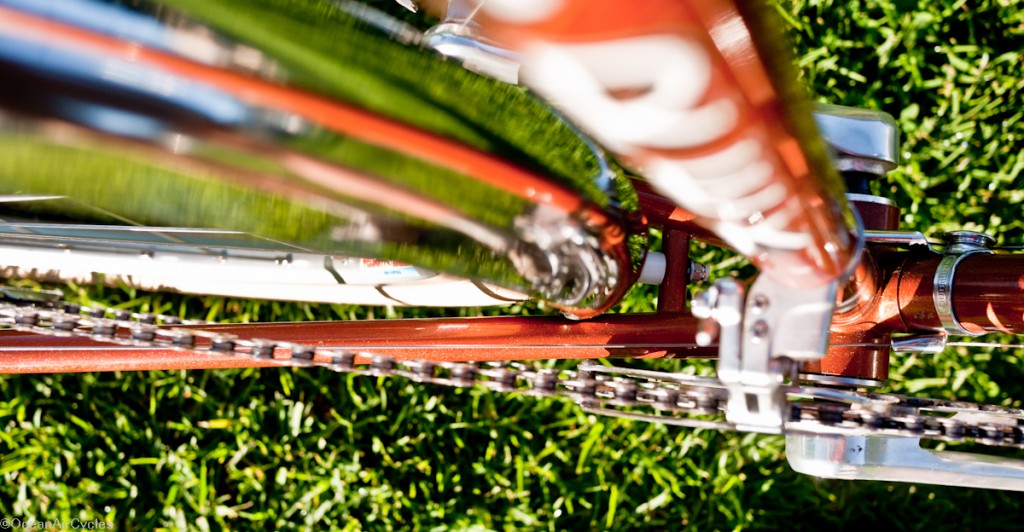
Rear wheel at mid-dropout.
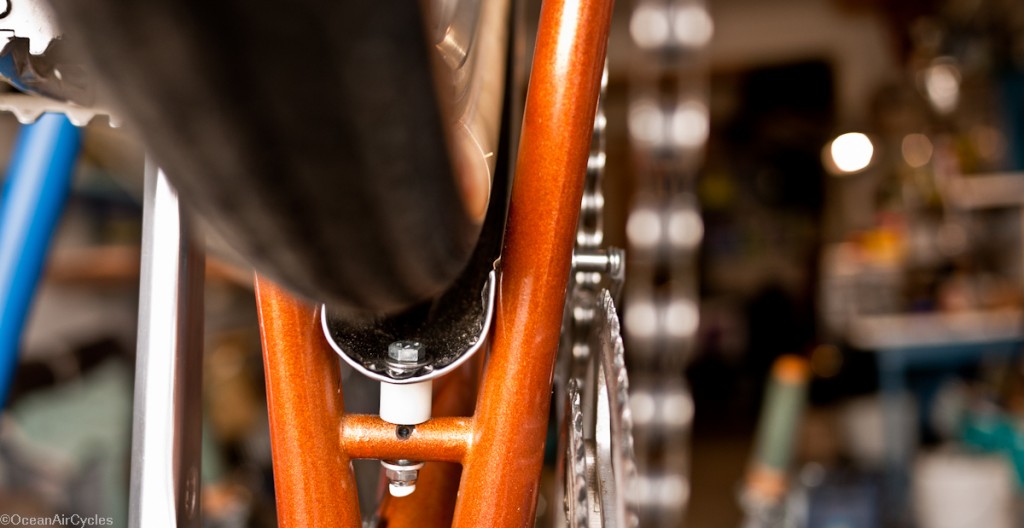
Rear wheel all the way back in the dropouts.
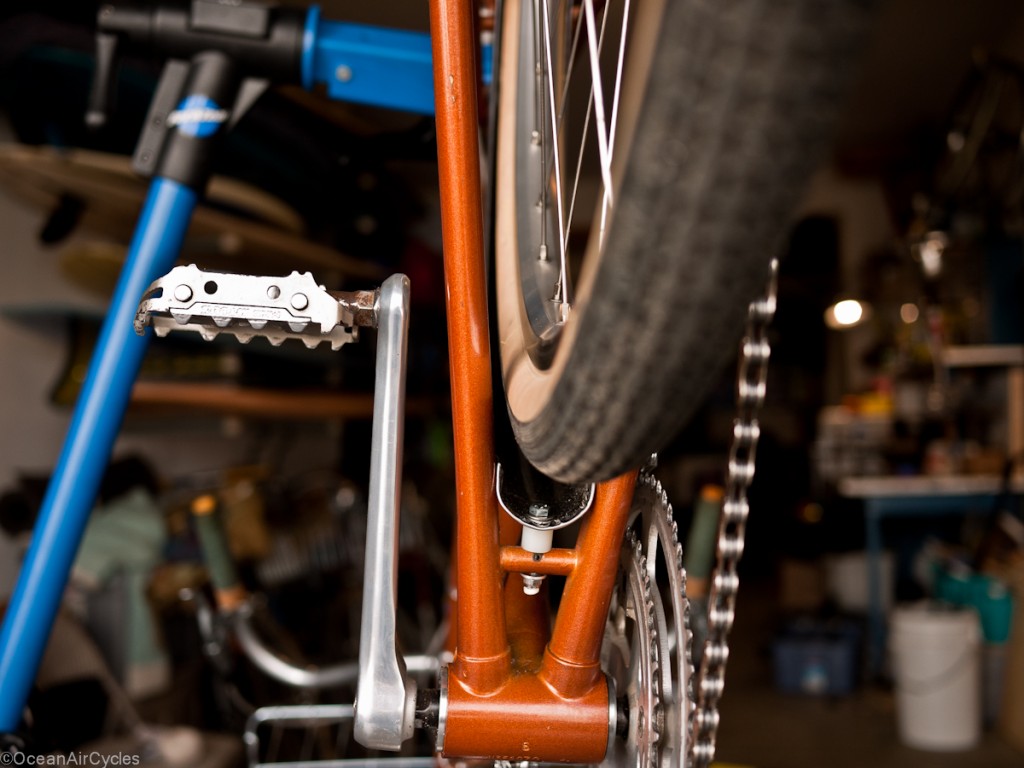
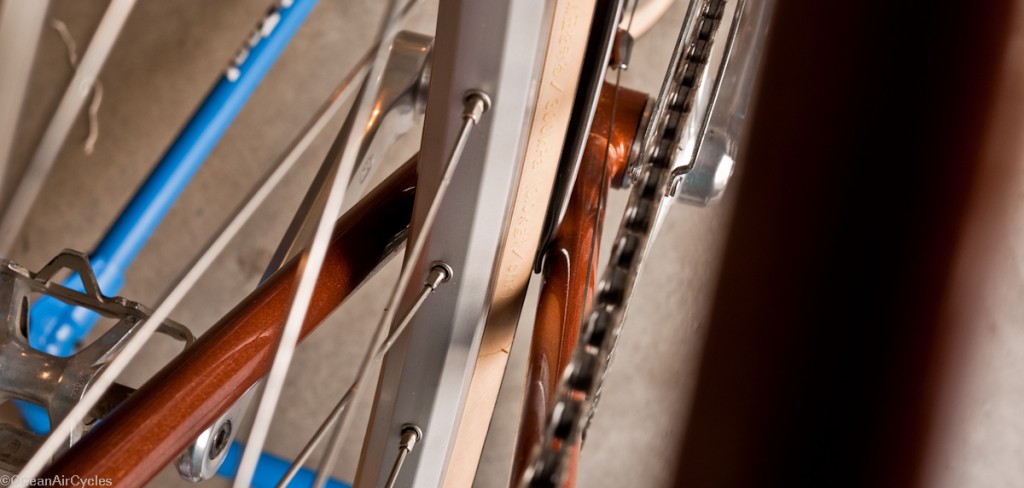
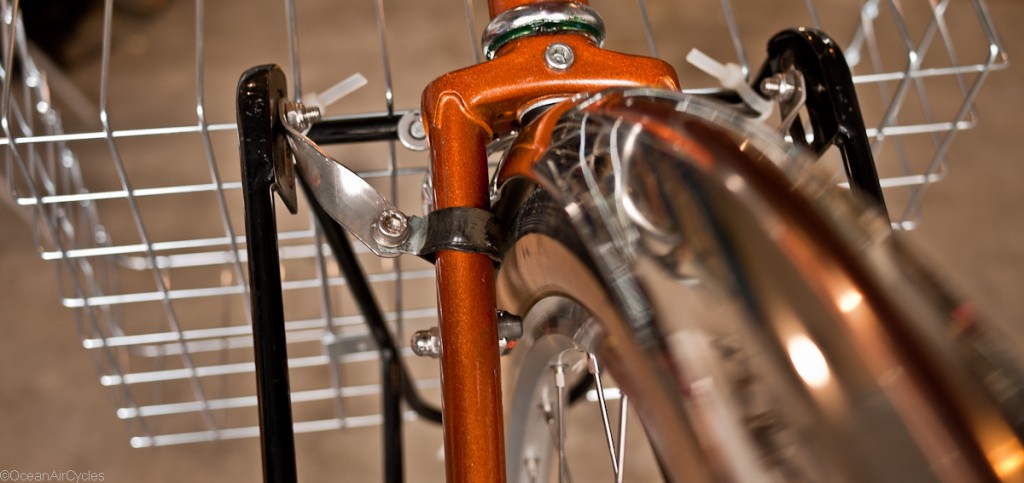
I would like to thank a whole bunch of people for sharing their knowledge on the web. If not for the collective knowledge provided by old Rivendell Readers, the iBoB and 650b email lists and the Bicycle Quarterly publication I likely would not have been able to work through this build in a single pass. It is the knowledge shared by those who have gone this way before that helped me to build such a wonderful bike.
Likewise, online vendors such as Universal Cycles, Rene Herse Cycles, Wallingford Bike, and Ben’s Cycle all made it possible to source the needed components.
This bike is going to have a new lease on life. Its owner is going to pick her up tonight. The planned maiden voyage will be a 90 mile ride home from Jalama state park. I wish I was along for the ride, it is going to be a good day tomorrow. Thanks to Mike for giving me the chance to build this bike up as a blue-collar constructeur.
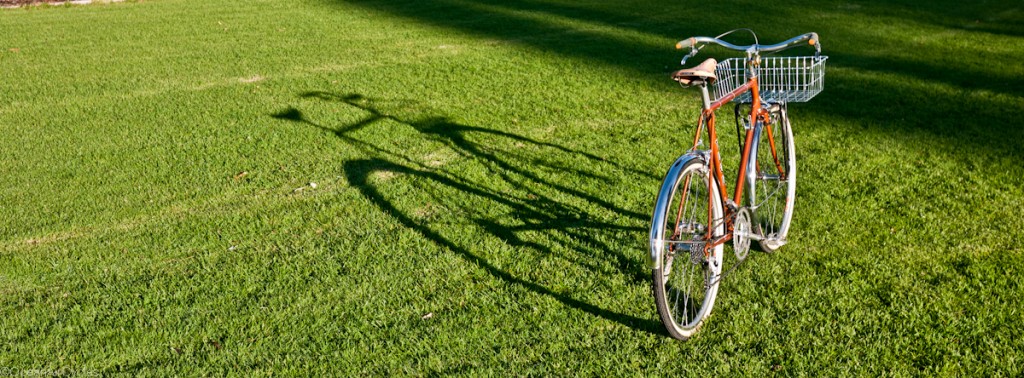
Off to cleain it up for delivery, thanks for taking a look.
